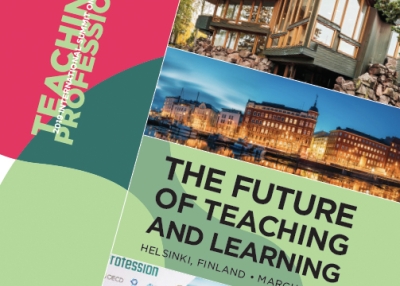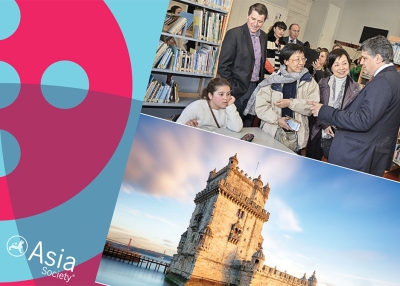Elementary Schools: Growing Up Global

Childhood is the right time to prepare our next generation for a global future. How they investigate the world, communicate ideas, and act on their beliefs can all start in the elementary years.
Today, the school experience must prepare students effectively with the knowledge, dispositions and skills they’ll need to connect, collaborate and compete in a highly interdependent world.
Asia Society has published a guidebook on how to develop global competency among elementary school students.
Download Ready for the World: Preparing Elementary Students for the Global Age.
Here are the major components of a global elementary school:
- A robust, engaging curriculum that seamlessly integrates district and state academic mandates with global content and competencies to foster high academic achievement and to create awareness and understanding of the world and its workings
- Language instruction, on a daily basis, from kindergarten throughout the elementary experience, with widespread exposure to native speakers
- Instruction that explores the world and how it works through constructivism, inquiry-based approaches and other best practices informed by research to pique student interest and spark ideas
- Assessments that are authentic and varied balance the state-required standardize testing with a greater focus on portfolios, performances, projects and targeted criterion referenced assessments
- Abundant use of technology for teaching, learning, researching information and connecting and learning with others beyond the classroom, community or national borders
- Dynamic interactions and exchanges with sister schools to enhance learning and create understanding
- Energetic service and volunteer programs that teach students leadership skills and develop their voice and agency as advocates for positive change locally and globally
- A focus on skills and dispositions that are vital in a highly interdependent world
- The use of learning venues and teachers beyond the school, leveraging the knowledge and experience of parents, businesses, university faculty, museums and cultural organizations
- Faculty that brings interest and perspectives about the world into the school
There are already elementary schools in existence that are preparing students for the real world in which they live. Each meets local and state mandates as well as having a vigorous global component. These schools are at different stages of development, but every one of them started the same way, with a vision and a plan for implementation. The schools featured in this website section are models—see what they do and hear their advice for you.





